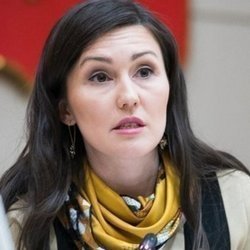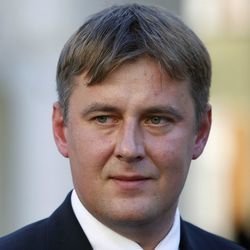Did Czech intelligence or Russian customs derail Tatarstan — Czech Republic forum?
The Kazan Kremlin stressed the readiness to strengthen foreign economic relations of Kazan with Prague regardless of the political situation
This year Tatarstan — Czech Republic annual business forum didn’t take place: the Czech business mission chaired by Minister of Agriculture of the Czech Republic Miroslav Toman was kept in Moscow for 10 hours after being denied permission to fly to Kazan, the delegation went back to Prague. Czech authorities had different opinions trying to understand Russia’s démarche: some considered it a reply to the publication of data about a network of FSB agents by Czech intelligence, others supposed it a usual administrative moment. Moreover, counterintelligence of Czechia has confused the pro-Russian president of the Czech Republic for the second year in a row in establishing normal relations with Moscow. And, as a consequence, in economic relations with Kazan: external trade turnover of Tatarstan with the Czech Republic has grown every year until now, in 2018 it already was $632 million and placed Prague seventh on the list of Tatarstan’s trade partners.
How Czechs got stuck in Moscow
Late last week the Czech business mission was denied a flight from Moscow to Kazan. After almost 10-hour unsuccessful waiting for permission from Russian aviation authorities to let the Czech charter flight head to the capital of the Republic of Tatarstan where Minister of Agriculture of the Czech Republic Miroslav Toman had planned to have talks with representatives of Tatarstan authorities, the Ministry of Foreign Affairs of the Czech Republic gave an instruction to the delegation to come back to Prague. And at the same time, it submitted a request to the Russian side about the denial of the plane’s flight en route Moscow — Kazan that had members of the republic’s business mission headed by the minister of agriculture on board.
Board Chairman of the Chamber of Commerce and Industry (CCI) of Tatarstan Shamil Ageyev said that the forum with Toman and representatives of officials of the region had to be cancelled because the plane from Prague had documents that were completed improperly:
“It was a technical delay because of the customs. It is the only reason, while there was full readiness," Ageyev noted.
Ambassador of the Czech Republic Vítězslav Pivoňka and President of Tatarstan Rustam Minnikhanov had anyway met before this and discussed the development of cooperation in the agro-industrial complex, including mutually beneficial produce supplies, other topical issues. While the Czech charter flight was waiting for permission in Moscow, a delegation of the Czech Republic was already in Tatarstan, which included agrarian diplomat of the Embassy of the Czech Republic to the Russian Federation Nikola Hrušková, First Secretary of the Embassy Jan Jindřich and others besides the Czech ambassador.
“This didn’t worsen the relations between Tatarstan and the Czech Republic”
The Embassy of the Czech Republic in Moscow didn’t comment on what had happened for Realnoe Vremya: “Today our press attaché isn’t here, we don’t comment without him”.
The official comment of the Russian side is: the Czech delegation was denied a flight because of violating the customs legislation. In answer to our newspaper, the Federal Customs Service urged to go by the comment of the Ministry of Foreign Affairs of the Russian Federation. The Kazan Kremlin briefly commented on the situation and clarified that the Czech and Tatarstan businesspeople would anyway meet, though in another place:

The official representative of the Kazan Kremlin didn’t comment on the Czech Republic’s statements saying that politics meddled in the case: the flight of the Czech delegation to Kazan was denied soon after the publication of a report of a local security service in Prague about “Russian spies” worked in the country:
“The president never comments on such things, we are outside geopolitics. We work in the economic sphere and investments. We see a complete understanding of our partners who were going to come here. They understand that this happened regardless of us. This didn’t worsen the relations between Tatarstan and the Czech Republic. Our standpoint is that we should strengthen our business links, and the Czech side also accepted it,” Galimova noted.

“This is how Russians reacted to counterintelligence’s report according to which Russian spies worked in the Czech Republic”
Vice-Premier and Minister of the Interior of the Czech Republic Jan Hamáček provided a political explanation for the denial of the business mission’s flight en route Moscow — Kazan on the same day, 28 November: “I believe that Russia's reaction could be the result of the current development of our relations”. President of the Czech Republic Miloš Zeman who claimed that the Kremlin could reply to the publication of the report of his country’s Security Service on a surge of Russian special services also agreed with him: “One of the hypotheses is that this is how Russians reacted to counterintelligence’s report according to which Russian spies worked in the Czech Republic,” Zeman claimed on Barrandov TV channel in Prague.
Nevertheless, head of the Ministry of Internal Affairs Tomáš Petříček tried to be very careful and claimed the next day, on 29 November, that the delay of Minister of Agriculture of the Czech Republic Miroslav Toman and a delegation of entrepreneurs that accompanied him at the airport of Moscow and their preliminary flight back to Prague was caused by purely administrative problems: “The situation could arise due to new Russian rules. So I believe that in this case, it is just a technical problem, I don’t consider it as some political issue,” he noted diplomatically.
Russian Foreign Ministry: Czechs themselves regularly make mistakes
The Russian Ministry of Foreign Affairs agreed with the Czech Minister of Foreign Affairs: it is noted in the comment on the website of the Russian Ministry of Foreign Affairs that the plane was denied the flight because of the non-compliance with requirements of the customs legislation of the Eurasian Economic Union. “Due to the appearance of different speculations about the reasons for the difficulties in the organisation of the flight of the delegation of the Ministry of Agriculture of the Czech Republic headed by its head Miroslav Toman from Moscow to Kazan on 27 November this year in the mass media, we would like to say that the problems arose only as a consequence of the Czech side’s non-compliance with requirements of the customs legislation of the Eurasian Economic Union”.

“Net was completely detected and dismantled”: what Czechs gang up against Russian FSB
Prague’s initial accusation particularly expressed by the minister of the interior and the president that the Czech plane wasn’t allowed to fly to Kazan for political reasons are explained by both complicated relations of the Czech Republic with Russia and no less complicated relations between pro- and anti-Russian politicians inside the country.
On 21 October 2019, the Security Information Service of the Czech Republic announced that a Russian espionage network, which, as Czech intelligence states, operated in the country, was busted and dismantled: “The network was completely destroyed and decimated thanks to the cooperation with the National Centre for Organized Crime. The investigation goes on,” head of the ministry Michal Koudelka at a press conference in the parliament of the Czech Republic.
According to Koudelka’s information, the detected network was a part of a longer chain that Russian special services allegedly used in the Czech Republic and prepared to use in other European countries. As the Czech security service stated, the network of agents was created by FSB and financed by the Russian embassy in Prague, and the goal was “to attack different targets in the Czech Republic and its foreign partners by deliberately created servers”: “The message that the Russian embassy to the Czech Republic allegedly financed a network has nothing to do with reality”.
When Czech president’s own counterintelligence regularly ruins relations with Moscow
Interestingly, same Michal Koudelka announced that the investigation network of Russian special services was dismantled a year ago too: on 7 December 2018, the Security Service reported that the intelligence network of one of the Russian special services was decimated. According to Koudelka then, the service had managed to expose tens of agents from Russia and China in the last five years. Apart from cyberattacks on the Czech Ministry of Foreign Affairs, the local special service accuse Russia of pursuing a “hybrid strategy” in the country aimed to weaken NATO and the European Union in aspiration to get control over a number of key enterprises and companies and organisation of information campaigns in the interests of Moscow.
At the same time when the Security Information Service of the Czech Republic published the annual report on its activity on 3 December 2018 where Russia’s actions were called the major threat to the country’s security “bigger than the activity of terrorist groups, organised crime or extremists forces”, President of Czechia Miloš Zeman who is famous for pro-Russian statements criticised him. He claimed that his ministry “reported on the presence of a big number of Russian and Chinese spies in Czechia without evidence”, while “confidential reports of special services don’t contain such information”. It is not excluded that Zeman’s statement that the denial of permission for the Czech plane fly to Kazan was caused by the publication of data of Czech intelligence reflects the president’s desire to distance himself from Michal Koudelka’s ministry. Moreover, he accused him of ruining the Russian-Czech and Czech-Tatar relations.
Agriculture Minister Toman at Tatarstan — Czechia annual forum
Meanwhile, Czech-Tatar relations are more than a year old. And the unlucky delegation headed by the Czech agriculture minister who wasn’t allowed to fly to Kazan highly likely was on its way to the traditional annual business forum Tatarstan — Czech Republic. The latest such an event took place about a year ago, on 7 December: a delegation of Czechia headed by Minister of Industry and Trade of the Czech Republic Marta Nováková and representatives of industrial enterprises visited Kazan.
A special Tatarstan-Czech joint working group on coordination of commercial and economic cooperation was created as early as 2011 when the first forum Possibilities of Cooperation of Entrepreneurs of the Czech Republic and Republic Tatarstan together with Tatarstan Prime Minister Ildar Khalikov and Minister of Industry and Trade of the Czech Republic Martin Kocourek.
Czechia ranks 7th in Tatarstan’s external commodity turnover with $632m
While external commodity turnover between Czechia and Tatarstan notably grows. If in 2015 it totalled €80,9 million, in 2018 it already did $632 (growth by 41% a year): Czechia occupied 7th place among Tatarstan’s trade partner countries. The Trade and Economic Representative Office of the Republic of Tatarstan operates in Prague. This June a delegation of industrialists from Tatarstan visited the Czech capital. Minister of Industry and Trade Albert Karimov had talks with the management of FANS and PBS Energo: about plans of FANS in cooperation in the production of water circulation systems and cooling towers and plans of PBS Energo in pipe production. Plans of Czech companies — PBS Energo, a.s., Jigostroy, MPower Engineering, a.s., FAVEA and others — to enter the market and/or cooperate with Tatarstan enterprises.
We will remind that Czechia itself demonstrated demarche earlier this July, Realnoe Vremya wrote about it: Prague unilaterally banned Russian airlines from flying to Czechia — because of dissatisfaction with the conditions provided by the Ministry of Transport of Russia for trans-Siberian routes for the Czech national airline Czech Airlines (Moscow to Seoul). Aeroflot, Pobeda, Ural Airlines had to cancel flights in a hurry. Flights were renewed anyway several hours later on the same day, 2 July.